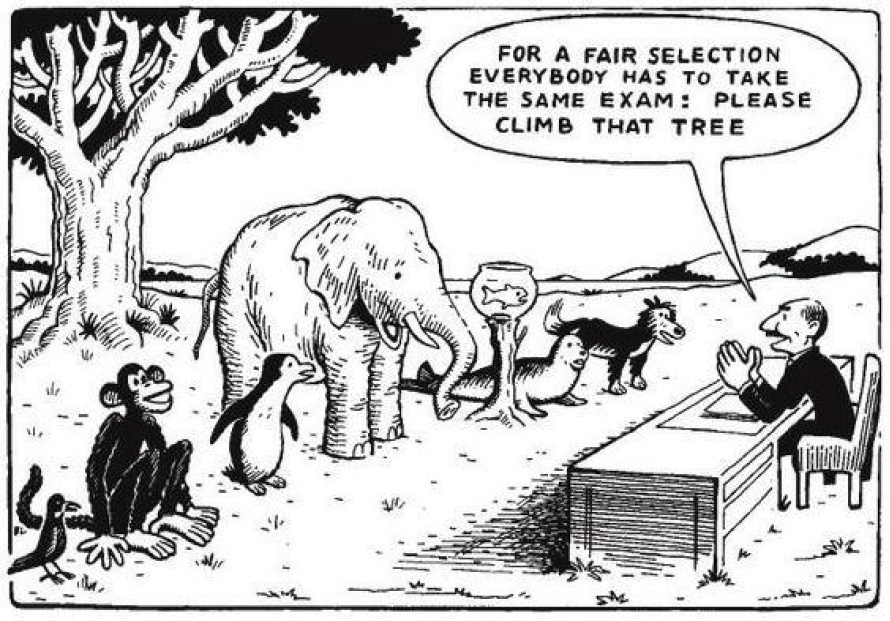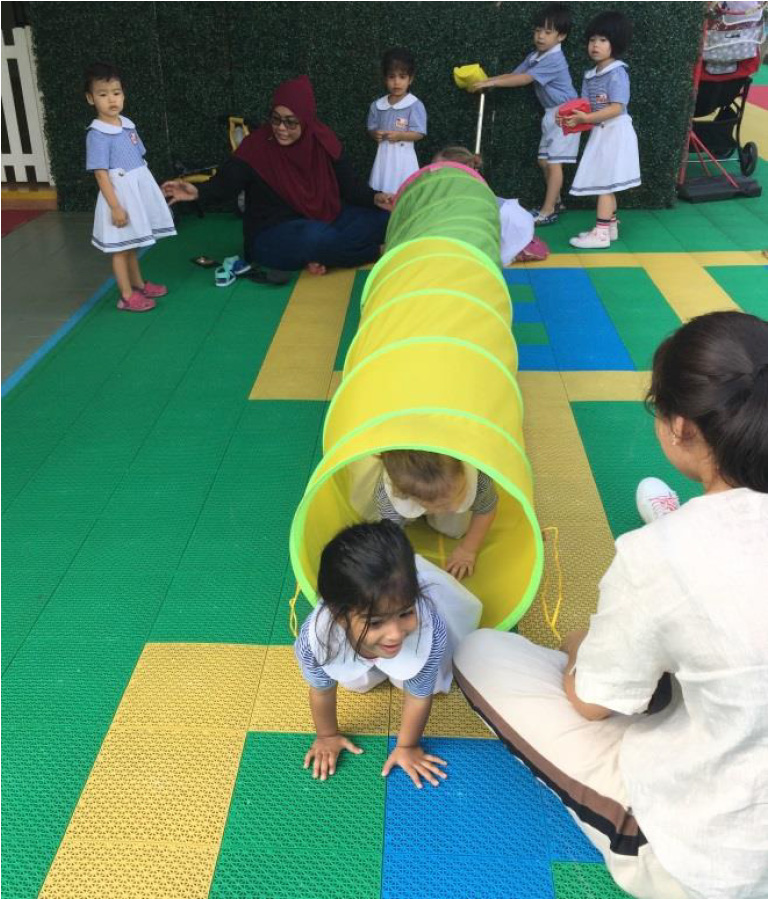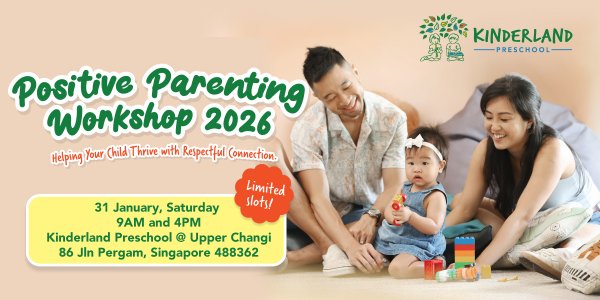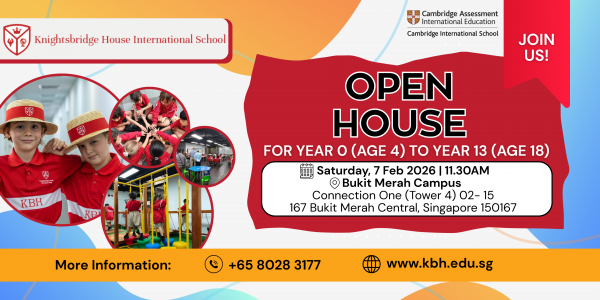Raising a Globally Competitive Child with a Positive Mindset
This article is the first of a multi-series combining the perspective of a parent of two young children, early childhood educator and senior executive of corporations who have hired and coached young professionals and entrepreneurs around the world.
While many parents recognize academic performance does not necessarily translate into happiness and career success for their children in the future, parents still need to ensure children conform to and excel in a certain academic system. A child must board the academic train and follow the tracks, just like every other child. And under the Singapore education system, standardized exams and academics are the key criteria for excellence. However, once our children disembark from this train and enter the workforce, are they genuinely prepared to thrive happily in the real world?
We often ask parents the question, “What if your child must leave the country he is raised in twenty years from now and live happily elsewhere? How do you, as a parent, prepare him for that future? What skills would your child need then?” This is a scenario many parents in developed countries do not think about. Rather having many focus on a checklist of future-proofing their children which often entail academics, coding, dance, speech and drama, etc.. do all these truly matter?

What does being globally competitive mean?
At Little Sage, we define globally competitive as having the skills to provide one with the maximum flexibility to work around the world doing whatever he wants to do. And if a person can do that, this person should already be eligible for many high paying jobs in Singapore.
A person who is globally competitive has a greater ability to embrace differences, overcome discomfort and stereotypes. Humans, by nature, dislike differences and unfamiliarity because it makes them uncomfortable. That is why humans like to make friends with those who share a common interest, hobbies and language. Most people do not feel comfortable talking to strangers as humans like to be able to relate to others. However, if you realize the stranger goes to the same yoga class as you, maybe you are more willing to talk to him? If our children can train their minds to perceive something different or unfamiliar as “fascinating,” they would be more inclined to embrace and learn about it.
Finally, the key to being globally competitive is to be able to reconcile differences and make something uncomfortable familiar and comfortable not just to yourself, but to those around you. It is about helping an organization venture from one place to another (often unfamiliar) in the smoothest way possible. It is the ability to provide a bridge across cultures, landscapes and unchartered waters that makes one value on a global scale.
How to raise a globally competitive child?
Raising a globally competitive child is both an art and a science. There is no checklist to follow. It is not about how affluent one is to send children abroad or travel the world. It is not about how much a parent spends on tuition courses. All parents have an equal chance of raising a globally competitive child, especially in an era where information is commoditized and easily within our reach if parents are disciplined and put in the effort. More importantly, it is about starting during the preschool years when children’s minds are most malleable. Finding the right preschool that will partner with you on this journey is critical. Little Sage was founded for this purpose.
Being Multi-Lingual and Embrace Multi-Culturalism
Language is the easiest way to expose children to the world. As parents, the greatest and easiest gift we can give our children is language. More importantly, there is no better time to present them with this gift before the age of 6 when bilingualism is easiest to establish. 80% of the human brain is developed by the age of 5, and that is why we often say children learn like a sponge, especially when it comes to languages.
Language is the easiest gateway for a child to grasp the concept of multi-culturalism and why differences exist around the world. For example, truly comprehending why one speaks English versus Hindi or Spanish helps a child understand why being different should be the norm. Also, learning Chinese poetry and history in Chinese rather than English engenders a completely different level of engagement and understanding of a culture. A child that can truly grasp cultural differences puts him far ahead in blending in and bridging all type of differences.
 Exposing them to the world
Exposing them to the world
It is important to expose children to the world outside of Singapore at an early age to liberate their minds. It is about sharing with them events or facts around the world just like narrating any storybook. Education about the world at such an early age is like taking children on the Disneyland ride “It’s a small world after all.” Keep it simple but interesting. It is about piquing their interest so they are curious about the borders beyond Singapore.
Exposing children to discomfort
As parents, we bring children into the world, doing whatever we can to help them live a comfortable life. Often to achieve what we want, however, we need to do the opposite. We can do whatever we can to prevent our children from falling and crying, but we know it is unrealistic for our children to never fall and cry. For our children to live a comfortable life, they must first know how to overcome discomfort. That needs to start in preschool years when the brain is most malleable. They need to be instilled with the fact that while falling is uncomfortable, it is natural, and that getting back up is an instinct.
To be globally competitive, their edge will come from having the ability to embrace something that is uncomfortable for others. Knowing one may have to fall first before having a chance to succeed is something most people are uncomfortable with. But if your child welcomes such discomfort as an interesting challenge, your child will be available to take advantage of opportunities that others will not.
Growth Mindset
Growth mindset is a frequently discussed topic amongst parents around the world. How do I raise a child with a “can do” attitude? How do I raise a child that will look at a glass half full rather than half empty when dealing with setbacks? Growth mindset incorporates many elements, but we define it simply as the belief that as long as one has confidence and is willing to work hard, one will eventually get to wherever she wants to go. In addition, learning and progress is a continuous and lifelong process.
In subsequent articles, we will go into detail for each topic on what Little Sage does and what parents can do to help their children achieve these outcomes. Stay tuned! For more information and a tour, please visit https://littlesagepreschool.com.sg/






Give your Opinions